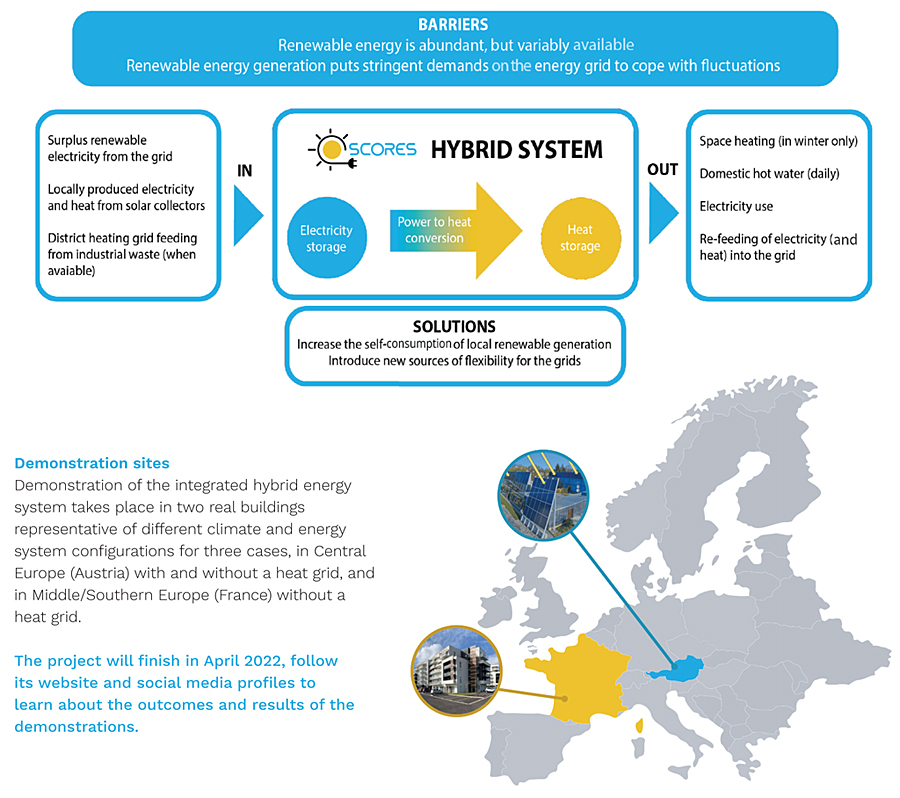About SCORES
SCORES is a collaborative research project supported by the European Commission under the Horizon 2020 Programme for Research and Innovation (Call H2020-EEB-2017), with an initial duration of 48 months. The project was extended by 6 months due to the global pandemic. The project consortium is made up of 12 partners from 7 European countries. Different technologies are developed by partners based on their specific field of business and expertise.
Demonstration sites
Demonstration of the integrated hybrid energy system takes place in two real buildings representative of different climate and energy system configurations for three cases, in Central Europe (Austria) with and without a heat grid, and in Middle/Southern Europe (France) without a heat grid.
Selected SCORES technologies
Air-to-air heat pumps with PCM storage system for space heating, CAMPA Efficient air-source heat pump able to store heat on demand in an optimized storage core to react quickly to the behavior of renewable energy production sources. It is a mono-block heat pump, integrating all components into one piece of equipment. The system is able to generate full renewable heat inside homes, manage thermal comfort and communicate with other appliances
PT/PVT water-to-water heat pumps, Heliopac
Optimized system for the management of hot water production based on coupling a water to water heat pump and PV/T collectors taking into account different internal variables. Photovoltaic and Thermal (PVT) collector is a solar energy technology using PV as the absorber. A PVT solar collector combines solar thermal and photovoltaic technology in a single unit, thereby, producing higher overall effi ciency at less roof-space. PVT collectors provided by partner Heliopac make efficient use of the limited space on roofs and facades.
CLS – Chemical looping heat storage, TNO
Solid-state Chemical Looping Combustion as highly compact and cost-effective thermal energy storage technology for excess renewable electricity. A team of engineers and scientists from TNO are developing a Power to heat concept named REDOX HEAT based on redox reactions of metals. REDOX heat battery uses the REDuction and OXidation reactions to store heat- the metal core is oxidized using air and the heat generated is used for supplying domestic hot water and space heating. After the reaction, the core is regenerated by supplying hydrogen produced by renewable electricity. This cyclic operation enables the use of this energy storage system in a similar way as we currently use standard rechargeable batteries at home, with the difference of storing heat rather than electricity.
BEMS – Building energy management system, SIEMENS
The Building Energy Management System (BEMS), developed by world-leading multinational partner Siemens, controls and monitors the various subsystems according to technical and economic parameters, optimizing the balance between supply and demand of electricity and heat, more specifi cally the optimization of self-consumption and peak-shaving of the electricity grid and heat grid.
